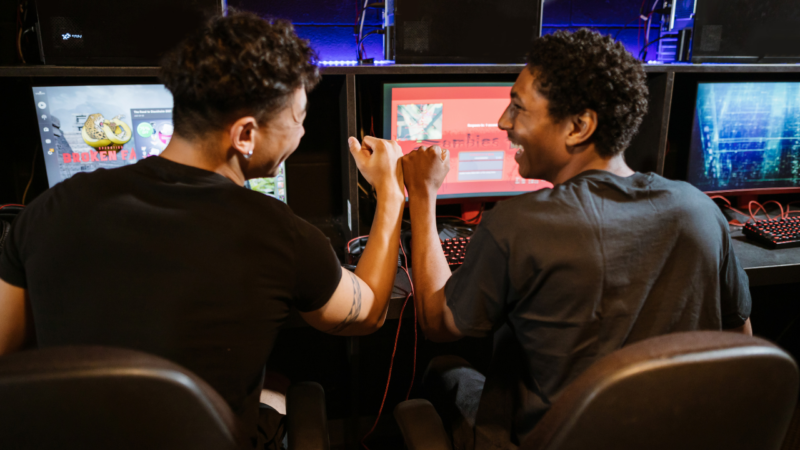In the intricate tapestry of life after incarceration, many ex-inmates grapple with the heavy burdens of stress and anxiety. The transition back into society can be overwhelming—filled with challenges that often feel insurmountable.
However, an unexpected ally in this battle is emerging: gaming. Once dismissed as mere entertainment, video games are proving to be powerful tools for emotional regulation and mental wellness.
They offer an escape from reality, an avenue for social connection, and a unique platform for developing coping mechanisms. By immersing themselves in fantastical worlds or engaging in cooperative missions, ex-inmates can unlock a realm of possibilities that not only distracts from their worries but also fosters resilience and self-efficacy.
As we delve deeper, we will explore how gaming not only captivates the imagination but also serves as a lifeline for those striving to rebuild their lives in the face of adversity.
Understanding the Need for Stress Relief Among Ex-Inmates
Understanding the need for stress relief among ex-inmates is a critical aspect of addressing their reintegration challenges. After years in the often oppressive confines of prison, individuals emerge into a world that can feel unfamiliar, overwhelming, and full of latent anxieties.
The abrupt transition from rigid routines and strict regulations to unstructured freedom can trigger a whirlwind of emotions—fear of failure, feelings of isolation, and persistent memories of past trauma. These stresses are compounded by societal stigmas and employment barriers that make re-establishing a stable life an uphill battle.
Consequently, effective stress management strategies are not just beneficial; they are essential. For many ex-inmates, gaming emerges as a modern sanctuary, offering them a unique avenue to unwind, connect with others, and reclaim a sense of control over their lives.
In this virtual landscape, they can escape from reality, confront personal challenges, and cultivate resilience—all while enjoying a much-needed reprieve from their daily struggles.

The Impact of Incarceration on Mental Health
The impact of incarceration on mental health is profound and multifaceted, often leaving its marks long after the prison gates close. Many ex-inmates grapple with a cocktail of anxiety, depression, and post-traumatic stress, remnants of their time behind bars where uncertainty and fear were constant companions.
Life in a correctional facility strips away autonomy and social connections, exacerbating feelings of isolation and helplessness. These experiences, coupled with the stigma of having been incarcerated, create a barrier to reintegration into society, leading to overwhelming stress and emotional turmoil.
In this context, gaming emerges as a powerful tool; not only does it provide an escape from harsh realities, but it also fosters community and connection, giving ex-inmates a channel to build resilience and constructively manage their mental health.
How Video Games Serve as an Emotional Outlet
Video games often serve as more than just a pastime; they can be profound emotional outlets, especially for ex-inmates grappling with stress and anxiety. Through immersive narratives and dynamic gameplay, players can escape harsh realities and momentarily shed their burdens.
Engaging in virtual worlds allows individuals to fight dragons, build civilizations, or simply explore vast landscapes—activities that provide a sense of agency that may have been stripped away during incarceration. The excitement of leveling up or overcoming challenging quests can spark feelings of achievement and hope.
Moreover, the social aspect of gaming fosters connections with others, creating virtual communities where shared experiences and mutual support flourish. In this way, video games become a powerful tool for emotional expression and relief, paving the way for healing as players navigate both their inner and outer worlds.

Conclusion
In conclusion, gaming presents a unique and beneficial avenue for ex-inmates seeking to manage stress and anxiety as they reintegrate into society. By providing a safe space for emotional expression and engagement, video games can serve as a vital tool in overcoming the challenges of everyday life.
This is particularly significant for individuals such as a black man who may confront additional societal pressures and stigma. As more research emerges, it becomes clear that the therapeutic potential of gaming can foster community, build resilience, and ultimately aid in the transition to a healthier, more stable lifestyle.
Embracing this innovative method can pave the way for improved mental well-being and a brighter future for those navigating the complexities of post-incarceration life.


